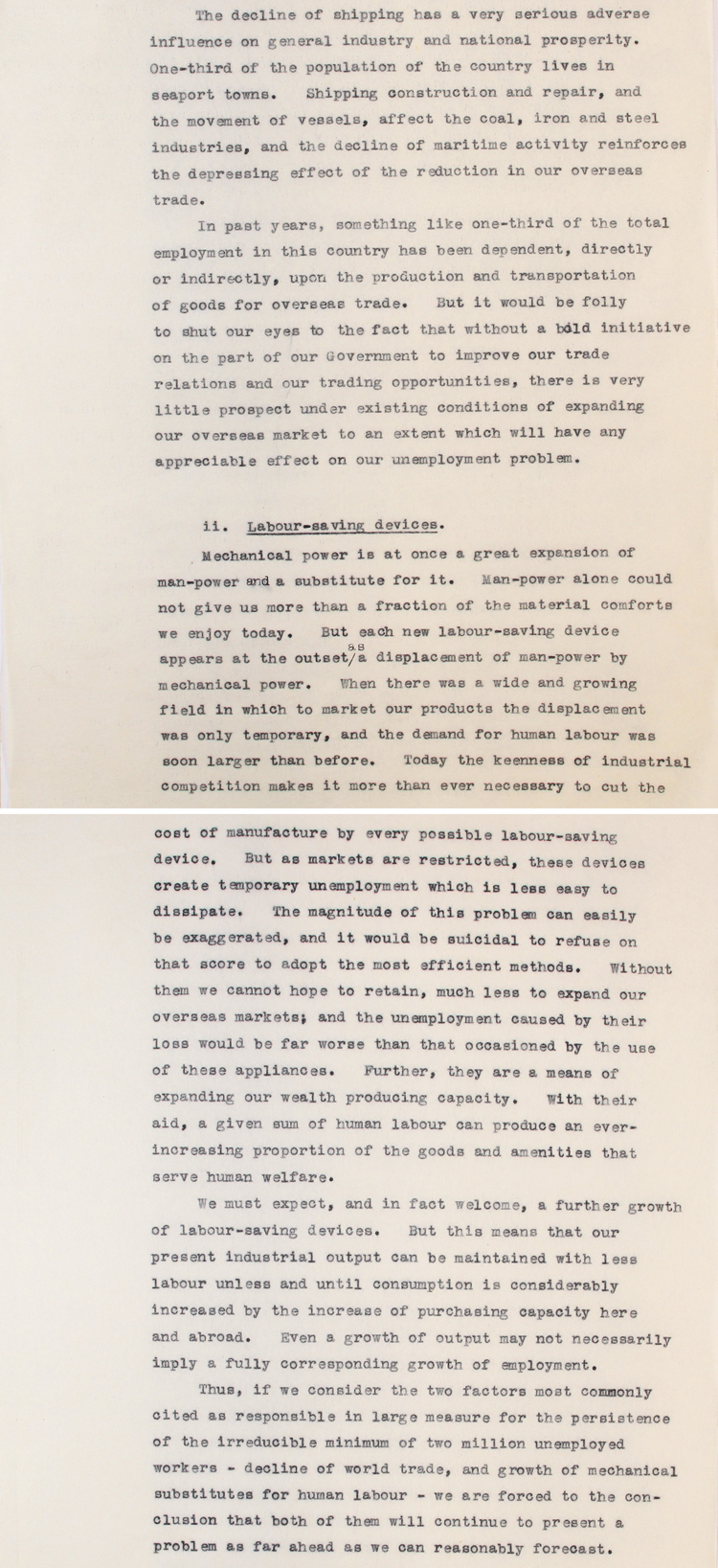
Extract from a report produced by former Prime Minister David Lloyd George on the problem of unemployment sent to serving Prime Minister Stanley Baldwin in 1935 (PREM 1/183)
Transcript
…
The decline of shipping has had a very serious adverse influence on general industry and national prosperity. One-third of the population of the country lives in seaport towns. Shipping construction and repair, and the movement of vessels, affect the coal, iron and steel industries, and the decline of maritime activity reinforces the depressing effect of the reduction in our overseas trade.
In past years, something like one-third of the total employment in this country has been dependent, directly or indirectly, upon the production and transportation of goods for overseas trade. But it would be folly to shut our eyes to the fact that without a bold initiative on the part of our government to improve our trade relations and our trading opportunities, there is very little prospect under existing conditions of expanding our overseas market to an extent which will have any appreciable effect on our unemployment problem.
ii. Labour-saving devices
Mechanical power is at once a great expansion of man-power and a substitute for it. Man-power alone could not give us more than a fraction of the material comforts we enjoy today. But each new labour-saving device appears at the outset as a displacement of man-power by mechanical power. When there was a wide and growing field in which to market our products the displacement was only temporary, and the demand for human labour was soon larger than before. Today the keenness of industrial competition makes it more than ever necessary to cut the cost of manufacture by every labour-saving device. But as markets are restricted, these devices create temporary unemployment which is less easy to dissipate. The magnitude of this problem can easily be exaggerated, and it would be suicidal to refuse on that score to adopt the most efficient methods. Without them we cannot hope to retain, much less to expand our overseas market; the unemployment caused by their loss would be far worse than that occasioned by the use of these appliances. Further, they are a means of expanding our wealth producing capacity. With their aid, a given sum of human labour can produce an ever-increasing proportion of the goods and amenities that serve human welfare.
We must expect, and in fact welcome, a further growth of labour-saving devices. But this means that our present industrial output can be maintained with less labour unless and until consumption is considerably increased by the increase of purchasing capacity here and abroad. Even a growth of output may not necessarily imply fully corresponding growth of employment.
Thus, if we consider the two factors most commonly cited as responsible in large measure for the persistence of the irreducible minimum of two million unemployed workers- decline of world trade, and growth of mechanical substitutes for human labour- we are forced to the conclusion that both of them will continue to present a problem as far as we can reasonably forecast.
…
